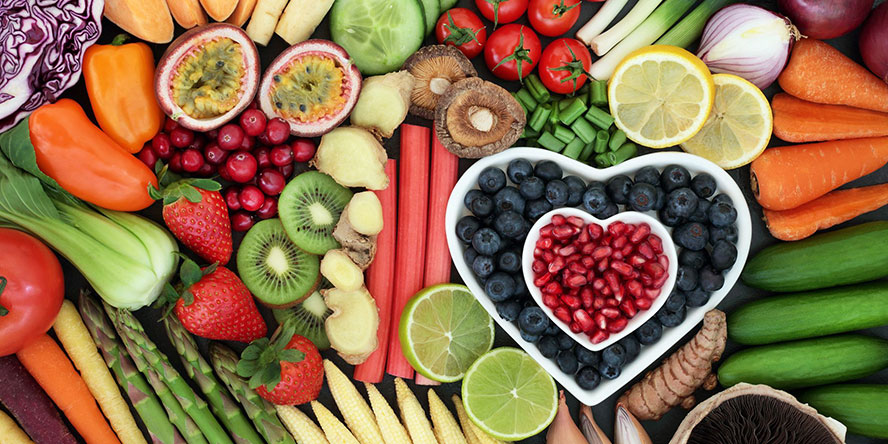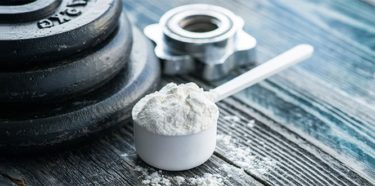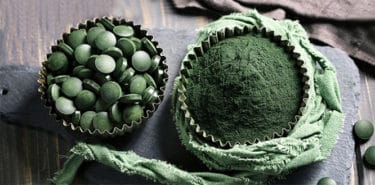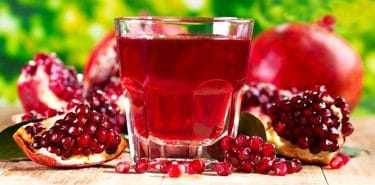Vegan is the person who adopts the principle of not consuming or using animals or animal products for nutrition, clothing, cosmetic or recreation purposes. Today, veganism is a concept with ever-increasing popularity. Individuals may become vegan for various reasons including health, rights of living things, ethic, environment and religion. While consuming herbal foods instead of animal foods is a beneficial thing for health, scientific studies have shown that vegans are at risk for undernourishment for vitamin B12, vitamin D, omega-3, iodine, iron, calcium and zinc. Vegan individuals can reduce the possible health risks by consuming plenty of herbal foods or taking supplementary vitamin and minerals when necessary.
Table of Contents
What is veganism?
Veganism is a lifestyle where no animal food is consumed and no product of animal origin is used. Vegans believe that humans have no right to exploit animals for any reason and that animals are valuable irrespective of their use to humans. Moreover, they state that the waste, energy and water consumption originating from producing and processing of animal foods and products is detrimental to nature and natural cycles, and veganism is also an ethical stance in an ecological and biological way.
What is vegan lifestyle?
Veganism is a philosophy of life that stands up for equality of living things and lives of them against any kind of animal exploitation. Therefore, a vegan excludes not only animal meat but also all animal products. These include milk and dairy products, gelatin, honey, carmine, pepsin, albumin, whey, casein and some D3 vitamins. They avoid buying clothes containing silk, wool, leather, fur or suede. They also try to avoid activities using animals for recreation products including circuses, zoos, rodeo, horse races, cockfighting, bullfighting and camel wrestling.
What is vegetarianism?
Vegetarians do not consume any living or dead animal including red meat, poultry, fish, other sea animals and shellfish, and insects. They consume grains, nuts, seeds, vegetables, fruits, mushroom and other non-animal origin products, and dairy products, honey and / or eggs based on their choice of vegetarian nutrition type.
- Lacto-Ovo vegetarians: They do not eat meat but consume dairy products and eggs.
- Lacto vegetarians: They do not eat meat, fish and eggs. They consume dairy products.
- Ovo vegetarians: They do not eat meat, fish and dairy products. They consume eggs.
- Vegans: They do not eat any kind of animal food. They take their nourishment from foods like grains, vegetables or fruits.
Individuals who do not eat meat or poultry but consume fish are called pescatarians.
Difference between vegans and vegetarians
While vegetarians and vegans choose to avoid animal products for similar purposes, this choice is usually beyond diet for vegans. Vegetarians are against animals being killed for food, however they may consume animal by-products such as milk and eggs. Vegans choose to exclude all main animal products and by-products from their lives irrespective of the conditions the animals are grown or sheltered in. Many environmentalists switched to vegan diet due to its benefits on world resources and climate change.
Going vegan
In societies in which meat consumption and using animal products is very common, it may not always be easy to go vegan lifestyle, and find and request vegan foods. A person who wants to go vegan should first be informed about the products they consume to make their lives easier. Checking out the labels and contents of food or clothing products, and learning the products, stores, restaurants, grocery stores, markets which are fit for vegan lifestyle would be beneficial.
Daily vegan diet
- At least five servings of various fruits and vegetables
- Starchy carbohydrates such as pasta, bulgur and rice which are whole-wheat if possible
- Milk alternatives such as soy milk or yoghurt
- Legumes which will meet the protein need such as bean/chickpea/lentil
- At least 6-8 glasses of fluid
Foods that vegans don’t eat
- Meat and poultry: Beef, lamb, pork, veal, horsemeat, venison, wild animal meat, chicken, turkey, goose, duck, quail etc.
- Fish and sea products: Any kind of fish, octopus, shrimp, mussel, crab, lobster etc.
- Dairy products: Milk, yoghurt, cheese, butter, cream, ice cream etc.
- Eggs: Chicken, quail, ostrich, fish eggs etch.
- Bee products: Honey, bee’s pollen, royal jelly etc.
- Substance of animal origin: Cheese, casein, gelatin, carmine, L-cysteine, vitamin D3 of animal origin and omega-3 fatty acids of fish origin
Vegan foods
Avoiding animal products does not mean eating only vegetables. In fact, many meals are already vegan or can easily be arranged to be vegan. Some examples include veggie burgers, pizzas with tomato, pepper and mushroom topping, baked potato with vegetables and pickles, hummus sandwich, pasta with tomato and minced soy meat, bulgur salad, lentil balls, stuffed grape leaves / vegetables with olive oil, bulgur salads with fruit or rocket. Meals with meat and animal products containing protein are usually replaced by:
- Beans, lentil, chickpea, black-eyed pea
- Mushroom, soy products (Tofu, minced soy meat, milk, yoghurt etc.)
- Hazelnut, walnut and other nuts
- Seeds and flowering herbs
- Herbal milks (almond, coconut, soy, hazelnut, oat, rice)
- Nutritional yeast supplement
Also instead of honey, molasses, maple syrup or rice syrup is preferred. Various whole grains and a large variety of fruits and vegetables are commonly consumed by vegans. Also, even though it is not very common in our country, ready-to-serve vegan products including vegan meats, reinforced herbal milks, vegan cheese and vegan versions of desserts are gradually increasing in grocery stores/restaurants selling vegan products.
Health effects of vegan diets
Vegans should be mindful of an adequate and balanced diet and properly plan their diets. Research has shown that vegans may need iron, calcium, zinc, omega, vitamin B12 and vitamin D supplement.
- Deficiency of vitamin B12 which is abundant in meat and dairy products may cause neurological problems such as memory loss, and loss of appetite, depression and fatigue.
- Omega-3 fatty acids in fish are important for mental development, and prevention of forgetfulness and depression.
- Inadequate intake of iron which is abundant in red meat may cause problems such as anemia, malaise and weakened immune system.
- Calcium and vitamin D in milk and dairy products and fish are highly important substances for bone health. Their deficiency may cause osteoporosis.
- Protein and aminoacid deficiency may cause edema, hair/nail loss, sleeplessness, muscle weakness and concentration impairment.
On the other hand, for veganism it is not enough to know about the foods consumed, there are also many factors such as environment and lifestyle. Another point of view suggests that since cholesterol levels are low in vegan/vegetarian individuals, conditions including cardiovascular diseases, diabetes, hypertension and obesity are seen less. Since vegans/vegetarians consume more legumes, walnut, hazelnut, fruits, vegetables and grains, their risk of getting cancer is also stated to be low.
Is it safe for a child to be vegan?
It is possible to raise healthy children with vegetarian or vegan diet provided that they take all the necessary nutrients. Abundant amount of energy and protein is necessary for growth and development of children. Sufficient amount of iron, calcium, vitamin B12 and vitamin D intake is important for vegetarian and vegan children. You should provide your child sources of protein, other vitamins and energy, and monitor them regularly.
- Be especially wary of food allergies such as hazelnut, peanut etc.
- Children should consume one or two serving sizes of protein products daily. Legumes, soy products, seeds and hazelnut are good protein sources. In order to prevent choking in children younger than 5 years, hazelnuts should not be served as a whole but as ground.
- You can serve your child with calcium-supplemented milk alternatives without sugar such as soy/hazelnut/coconut milk. Other calcium sources included green-leafy vegetables such as broccoli, cabbage and okra, bread, almond and peanut. Some foods are fortified with calcium, therefore, you should check the labels.
- If you put your infant or child to vegan diet, you should serve them B12-fortified foods. Foods which can be fortified with vitamin B12 include breakfast cereal, soy yoghurt, and soy, oat and almond milk. Vitamin B12 can also be found in yeast extract produced for vegans.
- Take care than your child takes sunbaths. If you feel like your child does not receive enough sunlight, (s)he can take vitamin D supplement as recommended by a physician.
- Omega – 3 sources other than fish include: flaxseed and oil, colza oil, soy-based foods such as soy oil and tofu, walnut, hazelnut, hazelnut/peanut oil.
- Little children require abundant amount of energy to thrive. Vegetarian and vegan foods might be rich in fibers and low in calories. As for starchy foods, your child needs some foods low in fibers and rich in calories such as white bread and rice. If you worry that your child is not able to take sufficient amount of energy, you should serve them foods rich in calories such as hummus, banana, hazelnut and seed oils.
Vegan pregnancy
A diverse and balanced diet is important during pregnancy both for your health and the growth and development of your baby. Vegan mother-to-bes:
- They should be sure that they take adequate amounts of iron, vitamin B12 and D, and calcium.
- They should consume dark green vegetables, whole-wheat bread, grains (cereals fortified with these, oatmeal), sugar-free soy products, yeast, sesame seed and oil, tahini, calcium-enriched tofu, apricot, fig, dried nuts, brown/white bread.
- Care should be taken to take sufficient amount of vitamin D intake through sunlight, and take vitamin D supplements during winter as recommended by a physician.
- Sufficient amount of folic acid intake before and during pregnancy is important. Other than eggs and fish, folic acid is found in spinach, broccoli, beans, peas, hazelnut, legumes, orange and lemon.
- Omega-3 fatty acids are necessary for the mental, visual and nervous development of the unborn child. Flax seed, walnut and hazelnut are rich in omega-3 and should be consumed.
Consult to your doctor to learn how to take all nutrients necessary for you and your baby.
Vegan breastfeeding
As with the pregnancy, a diverse and balanced diet is necessary during breastfeeding. Unless otherwise stated by your physician, you can continue taking the supplement you took during your pregnancy. Your baby takes all necessary nutrients from breast milk especially for the first 6 months of life. If you have a deficiency, this will also adversely affect the development of your baby.
Vegan mothers who cannot breastfeed or cannot produce enough breast milk can use baby formulas made of soymilk and supplemented with calcium, iron, vitamin D and vitamin B12. For babies allergic to soy, formulas made of rice or almond milk provided they are supplement with vitamins can be used. Beware the amount of supplements in the formulas; you may not need additional supplement.
Nutritional supplements for vegans
- Vitamin B12: Vitamin B12 in cyanocobalamin form has been studied extensively, and is believed to be most beneficial form for majority of humans.
- Vitamin D: D2 or vegan D3 forms are preferred.
- EPA and DHA: The ones obtained from algae oil are preferred.
- Iron: It should only be taken in case of a documented deficiency. Excessive iron supplement may cause health problems and may hamper the absorption of other nutrients.
- Calcium: Calcium is best absorbed when taken at a 500 mg or less dose at a time. Taking calcium at the same time with iron and zinc may reduce its absorption.
- Zinc: It is taken in gluconate or zinc citrate form. Do not take together with calcium.
Recommendations and warnings for vegans
- If you give weight to carbohydrates while avoiding from animal products, you may be at risk for obesity and cardiovascular diseases.
- The combination of your genetic characteristics and intestinal bacteria may affect the absorption of nutrients that you need when you are on a vegan diet.
- It would be beneficial to limit the amount of processed vegan foods that you consume, and instead prefer herbal foods which are rich in nutrients.
- Fortified foods, especially the ones fortified with calcium, vitamin D and vitamin B12 should be included in your daily menu.
- The fermentation of, sprouting of and cooking the legumes is important to increase the absorption of iron and zinc. Also, consuming the legumes together with vitamin C-containing foods will increase, and together with calcium-containing foods will decrease the absorption.
- Adding algae or iodized salt to diet may help vegans to reach the daily-recommended iodine intake.
Vegan recipes
Calkama
Ingredients:
- ½ kg of Spinach
- 1 bundle of chard
- ½ bundles of dill
- ½ bundles of parsley
- 1 onion
- Half teaspoon of olive oil
- 1 dessert spoon of sugar
- 1 dessert spoon of black pepper
- 1 teaspoon of salt
- 1 table spoon of flour
Preparation: All ingredients are fried until they are mildly raw. Then they are transferred into a glass ovenware. A table spoon of flour is mixed into half glass of water, and poured onto fried vegetables and mixed. Baked at 200 degrees C for 20 min.
Baked stuffed mushrooms
Ingredients:
- 8-10 mushrooms based on the number of persons
- 4 shallots or 1 middle-sized onion
- 2 table spoons of olive oil
- 2 cloves of garlic
- ½ bundles of parsley
- 2 walnuts
For the sauce:
- ½ glass of lemon juice
- 1 table spoon of apple cider vinegar
- 1 cloves of garlic
- 1 table spoons of olive oil
- 1 teaspoon of thyme
- 1 teaspoon of salt
Preparation:
- Remove the stems of the mushrooms.
- Rub olive oil on each side using brush, sprinkle salt and pepper, and place them into ovenware with their stem side looking up.
- For filling, shred the stems.
- Heat the fry-pan and add 2 table spoons of olive oil and sliced shallots.
- Cook until they lose their color, and chop up and add garlic.
- After that, add the shredded mushroom stems, and cook them well.
- Lastly, finely chopped parsley and walnuts.
- Fill every mushroom with the prepared filling.
- Bake the mushrooms until they are brown and soft in an oven preheated to 170 degrees C.
- You can serve it after pouring the sauce which is a mixture of lemon, apple cider vinegar, garlic, thyme and salt on it.




